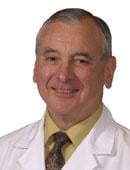
ACC President Alfred Bove, M.D.
July 2, 2009 - The Centers for Medicare and Medicaid Services (CMS) today released its proposed 2010 Medicare physician fee schedule, which includes proposals to significantly cut payments for cardiovascular-related services, prompting a stern response from the American College of Cardiology (ACC).
CMS projects the changes would reduce total Medicare payments to cardiology by 11 percent.
“The American College of Cardiology is shocked that CMS has proposed to cut payments to cardiology services by 11 percent in a single year,” said ACC President Alfred Bove, M.D., Ph.D., FACC. “These proposed cuts are based on the incorporation of a few esoteric pieces of data into a complex formula. The focus on this formula completely ignores the very important issues of access that are certain to be created by these huge slashes in payment. Services that have improved countless lives by diagnosing and treating cardiovascular disease are scheduled to have payment cuts in the range of 25 to 42 percent.”
He said the ACC is very concerned that CMS chose to disregard standards it previously put in place to ensure the quality of practice expense data. “We believe this is a significant departure from previous policy and may be a violation of statute. It is ironic that the agency that purports to support an evidence-based approach to medicine is making major decisions based on such shoddy and incomplete data,” Dr. Bove said.
“Given the extensive discussion of previous surveys in previous rules, the ACC is concerned about the very brief discussion of the new survey in this proposal,” he added. “In previous rules, CMS has stated its strong concerns about wild swings in payments for services and has chosen not to implement significant changes in payments in a single year. The ACC questions why they would propose to do so this time.”
The ACC reports the following projected payment cut would result from the CMS policy proposals:
• Practice Expense: CMS has proposed incorporating the results of the American Medical Association’s Physician Practice Information Survey into its formula for calculating practice expense relative value units (RVUs). If implemented, this proposal alone would decrease total Medicare payments to cardiology by 10-40 percent. The ACC cites specific areas where cuts would be deepest, according to the proposal, including a 42 percent cut in transthoracic echo with spectral and color flow; a 24 percent cut in left heart catheterization; and a 21 percent cut in ECG payments.
• Equipment utilization: CMS proposes adopting the Medicare Payment Advisory Commission’s (MedPAC) recommendation to change the agency’s formula for calculating the per procedure cost of medical equipment worth more than $1 million. The proposal would assume all equipment with an acquisition cost greater than $1 million is used 90 percent of the time an office is open, thus driving down the practice expense RVUs for services using that equipment. The ACC said within cardiology, cardiac MR, cardiac CT, and nonhospital cardiac catheterization services would see payment cuts as a result.
• Malpractice: CMS proposes to update the malpractice RVUs with data from a new survey of specialty-level malpractice premiums. CMS has also proposed a new method for determining malpractice RVUs for technical component services. The ACC said this could reduce cardiology payments by 1 percent.
• Consultations: CMS has also proposed eliminating payments for consultations provided in office and hospital settings. The RVUs assigned to these codes would be redistributed to office and hospital visits and, if implemented as proposed, services now billed as consultations would be billed as hospital or office visits. The ACC said this would reduce payments to varying degrees for consultation services.
• SGR: As required by current law, the proposed rule includes a 21.5 percent reduction in Medicare physician payment as of Jan. 1, 2010. The ACC said this cut would be in addition to the payment reductions that result from the proposed policy changes described above. The college said there could be as high as a 30 percent cut in Medicare payments for cardiology.
The ACC and its partners across the cardiology community said they are prepared to wage an aggressive campaign to prevent implementation of these policy changes. The ACC is urging its members to contact their lawmakers and ask them to prevent these payment policies.
For more information: www.acc.org/can

